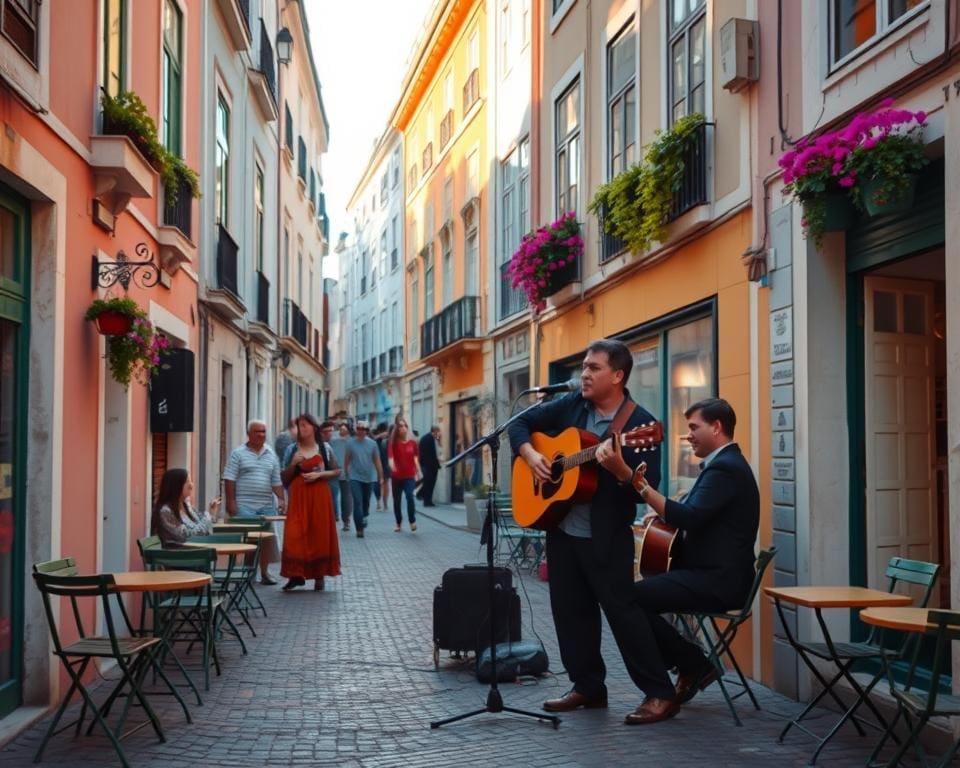Lisbon, the vibrant capital of Portugal, is a city where Fado music and pastel-coloured streets beautifully intertwine. This captivating blend creates a unique atmosphere that enchants both locals and visitors alike. As you wander through the winding alleys of the historic Alfama district, you’ll encounter the soulful melodies that define Fado, an art form steeped in tradition and emotion. The charming façades, painted in gentle hues, lend an enchanting backdrop, inviting you to explore further into Lisbon’s rich history and musical heritage.
In Lisbon, every corner reveals a new dimension of its identity, making it a must-visit destination for anyone eager to experience the spirit of Portugal through its music and culture.
The Soul of Lisbon: Fado Music
Fado Music encapsulates the very essence of Lisbon, portraying the deep emotional connections rooted in Portuguese culture. Characterised by nostalgic melodies and poignant lyrics, Fado resonates with themes of longing and love, creating an immersive experience for listeners. This musical genre uniquely embodies the spirit of the city’s history and the artistic expression of its people.
What is Fado Music?
This traditional genre typically features a solo singer, accompanied by a Portuguese guitar and sometimes a viola. The lyrics often reflect personal experiences, weaving tales of love, sorrow, and the concept of *saudade*. This rich emotional tapestry serves as both a personal and communal outlet within Portuguese culture, inviting audiences to engage with the depths of the human experience.
Origin and Evolution of Fado
The Fado origins remain somewhat enigmatic, with influences spanning African, Brazilian, and various European traditions. Born in the working-class neighbourhoods of Lisbon in the early 19th century, Fado found its voice in the taverns and streets of the city. Over the years, this genre has undergone significant evolution, transitioning from local taverns to national pride, reaching international acclaim. Each new wave of performance reflects both its historical influence and the continual adaptation of this musical genre, ensuring its relevance in contemporary society.
Key Artists and Influences
Fado’s evolution has been shaped by remarkable Fado artists and influential musicians. Amália Rodrigues, often revered as the “Queen of Fado,” played a pivotal role in propelling the genre onto the international stage, her emotive performances captivating audiences worldwide. Today’s artists, such as Carlos do Carmo and Mariza, blend innovation with tradition, breathing new vitality into the Fado repertoire. These cultural icons continue to inspire new generations, ensuring that Fado Music remains a treasured component of Portugal’s rich cultural heritage.

Lisbon: Fado Music and Pastel-Coloured Streets
The Alfama District, one of Lisbon’s oldest and most vibrant historic neighbourhoods, is an essential stop for those seeking to immerse themselves in the city’s rich culture and history. With its winding streets and striking azulejos, exploring Alfama offers both the charm of picturesque views over the Tagus River and a labyrinthine layout where hidden cafes and artisan shops await discovery. This area’s allure is a significant draw for tourism, as it plays host to numerous traditional Fado houses that encapsulate the spirit of Lisbon.
Exploring the Alfama District
As you wander through the Alfama District, the sounds of live Fado performances resonate from the venues scattered throughout. This exploration leads not only to beautiful photo opportunities but also to an authentic encounter with the music that is the lifeblood of Lisbon. This neighbourhood embodies a cultural experience, where every corner holds the promise of a new discovery, whether it be a local artist’s work or the aroma of freshly prepared Portuguese cuisine.
The Experience of Live Fado Performances
Experiencing live Fado performances is truly an unforgettable musical experience. Venues like Clube de Fado and A Tasca do Chico invite visitors into intimate settings that enhance the listening experience. Here, the profoundly emotional interpretations of Fadistas convey stories of longing and love, allowing the audience to connect deeply with the genre. Often accompanied by traditional meals, these performances offer more than just music; they present an enriching cultural experience that lingers in the memory long after the last note fades away.








